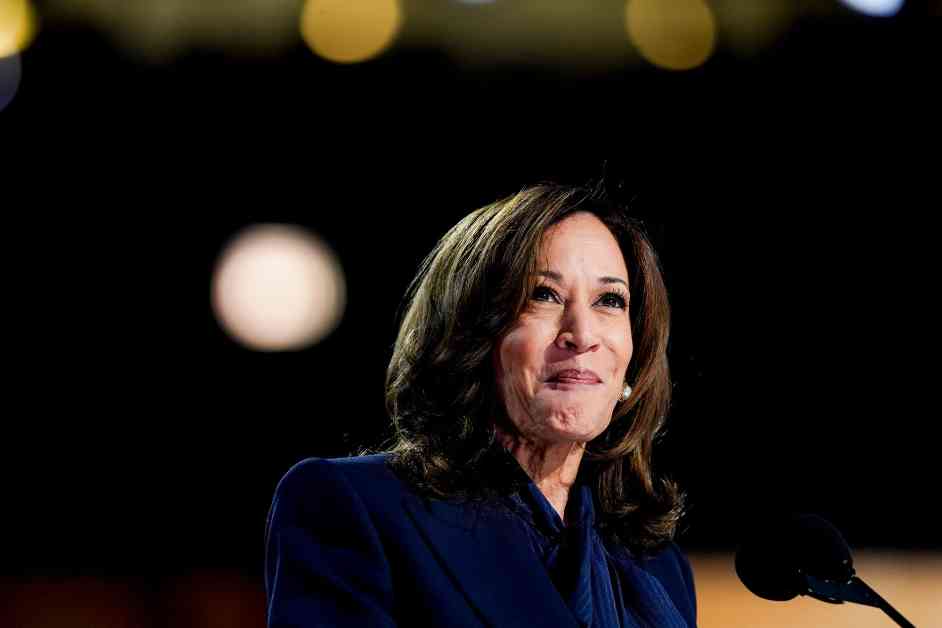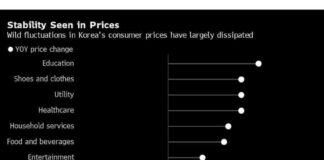Supporting the Franchise Community: How Kamala Harris Can Make a Difference
The recent Democratic National Convention saw the unveiling of a new ticket at record speed, with Senator Kamala Harris joining Joe Biden as the Democratic nominee for Vice President. As the International Franchise Association (IFA) remains neutral in presidential elections, they are focused on working with whoever is in the White House to advance the interests of the franchise community. During the conventions, the IFA was actively engaged in educating candidates and campaigns about the positive impact of franchising, particularly for minority-owned businesses.
With the franchise community eager to learn more about Vice President Harris’ vision and policy priorities, which she outlined in her acceptance speech as an Opportunity Agenda, there is a sense of optimism within the industry. One promising sign is the inclusion of her experience working at McDonald’s in one of her early commercials. This connection to the franchise industry resonates with the 1 in 8 Americans who have worked at McDonald’s, showcasing a shared experience that could potentially lead to meaningful support for the franchise business model.
To truly make a difference and support the franchise community, Vice President Harris can take concrete steps that will resonate with franchise owners, employees, and stakeholders across the country. Here are five key ways in which she can appeal to the franchise community and champion their interests:
Be a Champion for Franchising
Vice President Harris has the opportunity to be a vocal advocate for franchising by actively engaging with franchises and their employees during her campaign trail. Visiting franchises in swing states and beyond will not only showcase the positive impact of franchising but also highlight the unique benefits it offers to employees and owners alike. With nearly 9 million employees working for America’s 800,000 franchise businesses, franchising provides higher wages and better benefits compared to non-franchised businesses. By championing franchising, Vice President Harris can position it as a key component of her Opportunity Agenda, emphasizing its role in creating opportunities for diverse stakeholders within the model.
Abandon an Expanded Joint Employer Rule
One of the critical issues facing the franchise community is the potential expansion of the joint employer rule, which could have detrimental effects on franchising. Vice President Harris has spoken about the importance of working with both business and labor, and it is essential that she recognizes the impact an expanded joint employer rule could have on small businesses, particularly franchise owners. By abandoning efforts to implement such a rule, Vice President Harris can demonstrate her commitment to supporting small business creation and preserving the equity of franchise owners in their businesses. This action would align with bipartisan support in Congress and the rejection of expanded joint employer liability in various legislative bodies.
Call for Pro-Small Business Tax Policies
In light of expired and expiring provisions of the Tax Cuts & Jobs Act (TCJA), Vice President Harris can advocate for pro-small business tax policies that benefit franchise owners. Extending the qualified business income deduction (QBID) and restoring a pro-growth interest deductibility standard are crucial steps that can significantly impact franchise owners’ financial stability. By supporting legislation like the bipartisan Tax Relief for American Families and Workers Act, Vice President Harris can demonstrate her commitment to addressing the needs of small businesses and providing them with a competitive edge over large corporations. These actions would signal a willingness to work across party lines and prioritize policies that directly benefit small business entrepreneurs.
Increase Lending Limits at the SBA
Access to capital is a significant challenge for many small businesses, including franchise owners who rely on financing to grow and expand their operations. Vice President Harris can support increasing lending limits at the Small Business Administration (SBA) and enhancing access to programs like the 7(a) Working Capital Pilot (WCP) program. By providing greater flexibility and resources through initiatives like the WCP, Vice President Harris can fulfill her pledge to provide access to capital for small business owners and entrepreneurs. In a high-interest rate environment, these measures are critical in breaking down barriers and enabling aspiring entrepreneurs to pursue franchising as a pathway to business ownership.
Outline a Future for the Federal Trade Commission
The Franchise Rule, a federal regulation enforced by the Federal Trade Commission (FTC) that governs the sale of franchises, is in need of modernization. Vice President Harris can outline a future for the FTC that includes updating the Franchise Rule to better protect consumers and prospective franchisees. With the evolving landscape of franchising and the complexities involved in understanding franchise disclosure documents (FDDs), there is a clear need for reforms that enhance transparency and ensure prospective franchisees are well-informed before making significant investments. By prioritizing the modernization of the Franchise Rule, Vice President Harris can demonstrate a commitment to fostering entrepreneurial development in franchising and safeguarding the interests of consumers and stakeholders.
In conclusion, Vice President Kamala Harris has the opportunity to make a significant impact on the franchise community by championing their interests and advocating for policies that support small businesses. By actively engaging with franchises, addressing key issues like the joint employer rule and tax policies, and enhancing access to capital through programs like the SBA, Vice President Harris can demonstrate her commitment to fostering entrepreneurship and economic growth. As the franchise community looks to the future, they are hopeful that Vice President Harris will prioritize their needs and work towards creating a supportive environment for franchise owners, employees, and stakeholders nationwide.






















